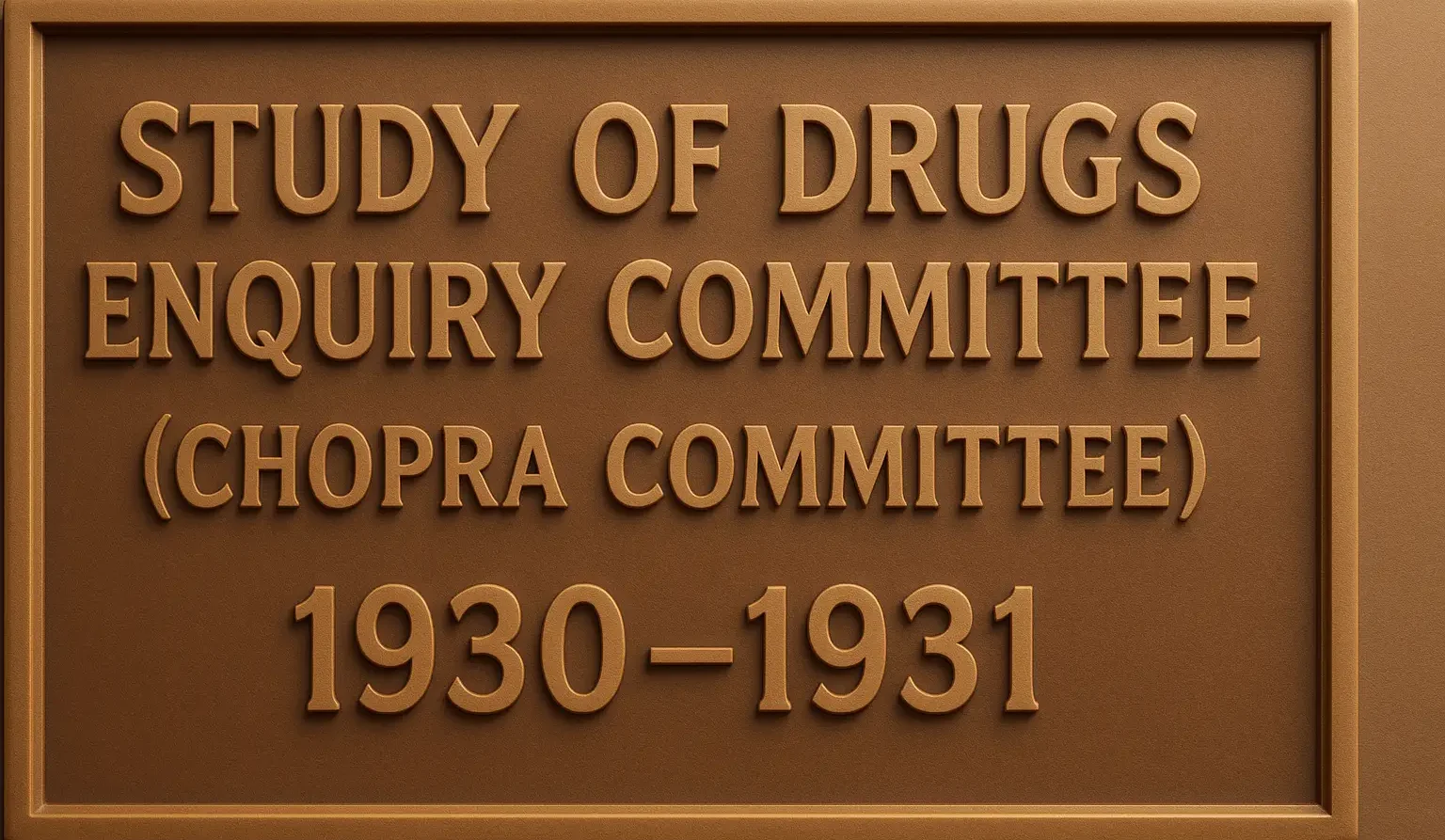This article explains about the findings of the Drugs Enquiry Committee (Chopra Committee) 1930–1931 and its impact on Indian drug regulation reforms.
Purpose:
- The Drugs Enquiry Committee, chaired by Colonel R.N. Chopra, was the first committee established to investigate the pharmaceutical industry in India.
Objectives:
- Examine the quality of drugs available in the market.
- Study the extent of spurious and adulterated drugs.
- Suggest measures to regulate drug manufacturing and distribution.
Findings:
- The market was flooded with adulterated, substandard, and spurious drugs.
- There was no legislation to control the quality of medicines in India.
- The absence of proper testing facilities and trained professionals worsened the situation.
Advertisements
Recommendations:
- Enactment of comprehensive laws to regulate the pharmaceutical industry.
- Establishment of drug testing laboratories to ensure quality control.
- Creation of a licensing system for manufacturing and sale of drugs.
- Formation of a Central Drug Control Authority.
Outcome:
- Based on this committee’s recommendations, the Drugs Act of 1940 was enacted to regulate drug import, manufacture, and sale.
- It later evolved into the Drugs and Cosmetics Act, 1940, with amendments for improved safety and quality control.

